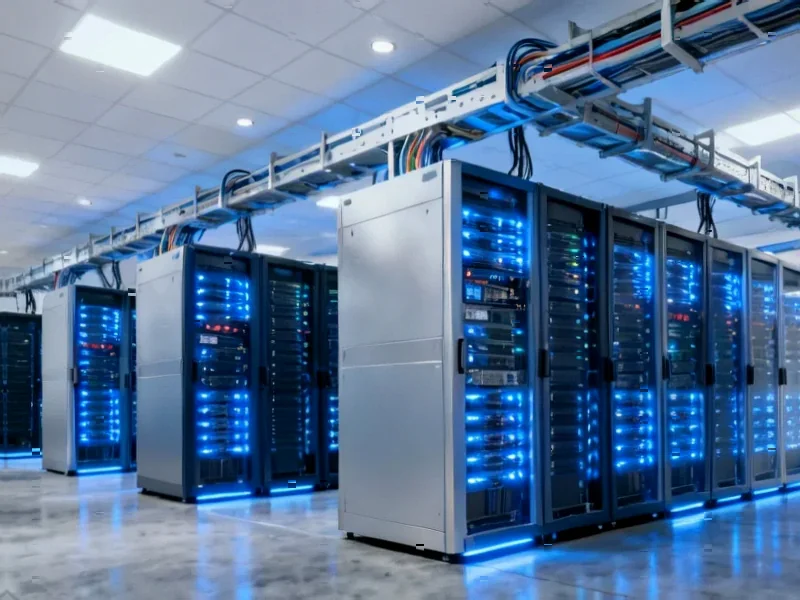According to TechRepublic, Nvidia has partnered with South Korea’s government and leading technology companies to supply over 260,000 advanced AI GPUs as part of the nation’s $10 billion push to become a global AI superpower. The deal, announced during APEC meetings in Gyeongju, involves collaboration with the Ministry of Science and ICT, Samsung, SK Group, Hyundai Motor Group, and cloud providers Naver and Kakao. This single transaction will more than quadruple South Korea’s AI chip stock, elevating the country to third place globally in GPU count behind the US and China, according to presidential secretary Ha Jung-woo’s statement to The Korea Herald. The GPU deployment will begin next year and continue through the decade, with Nvidia CEO Jensen Huang praising South Korea’s ambition to “produce intelligence as a new export.” This massive infrastructure investment signals a fundamental shift in how nations approach technological sovereignty.
The New Era of Sovereign AI Infrastructure
South Korea’s approach represents a sophisticated evolution of the “sovereign AI” concept that extends far beyond simple data localization. By building domestic infrastructure capable of training state-of-the-art models, the country is positioning itself to control both the means of AI production and the resulting intellectual property. This contrasts sharply with earlier approaches that focused primarily on data residency requirements. The strategic deployment across the National AI Computing Center and multiple cloud providers creates a distributed ecosystem rather than centralized government control, enabling both public research and private innovation to flourish. As detailed in Nvidia’s announcement, this infrastructure will serve researchers, startups, and established companies simultaneously, creating a virtuous cycle of development and application.
Catalyst for Domestic Semiconductor Ecosystem
The timing of this investment is particularly strategic given South Korea’s position as a semiconductor manufacturing powerhouse. Samsung’s planned “AI factory” with 50,000 GPUs creates immediate synergy between AI development and semiconductor advancement. Rather than simply consuming AI chips, South Korea is building infrastructure that will accelerate its own chip design and manufacturing capabilities. This creates a feedback loop where improved semiconductor technology enables better AI systems, which in turn optimize semiconductor production processes. The country appears to be executing a master strategy to dominate the entire AI value chain from silicon to software, potentially challenging both US technology leadership and China’s manufacturing scale.
Geopolitical Realignment in AI Supply Chains
This deal represents a significant strategic pivot for Nvidia amid ongoing US-China trade restrictions. With advanced chip sales to China constrained, South Korea emerges as an ideal alternative market—technologically sophisticated, politically aligned, and strategically located. The scale of this commitment suggests Nvidia sees South Korea as a long-term anchor customer in Asia, potentially creating a new hub for AI development that could serve the broader region. For South Korea, this partnership provides access to cutting-edge technology while maintaining alignment with US export controls, navigating the complex geopolitics of advanced semiconductor technology with remarkable finesse.
Industrial AI Transformation at Scale
The specific allocations to Hyundai Motor Group for autonomous driving and SK Group’s industrial AI cloud indicate a deliberate focus on applying AI to South Korea’s existing industrial strengths. Unlike many countries pursuing AI primarily for consumer applications or software services, South Korea is deploying these resources to transform its manufacturing, automotive, and heavy industries. This industrial-first approach could yield faster economic returns and create sustainable competitive advantages in sectors where the country already excels. The RTX PRO 6000 Blackwell chips specified for SK Group’s project represent some of Nvidia’s most advanced industrial-grade technology, suggesting these applications will push the boundaries of what’s possible in manufacturing and logistics.
Accelerating the Global AI Infrastructure Race
South Korea’s massive GPU acquisition will likely trigger similar investments from other technologically advanced nations, creating a new dimension of global competition. Countries that previously focused on AI talent development and research funding must now consider whether they need comparable computing infrastructure to remain competitive. The scale of this deal—260,000 GPUs in a single agreement—sets a new benchmark for national AI ambitions. We can expect similar announcements from Japan, Germany, and other industrial powers within the next 12-18 months as they respond to this new standard for national AI capability. The era when countries could rely on commercial cloud providers for AI infrastructure may be ending, replaced by strategic national investments in sovereign computing capacity.





Thank you for your sharing. I am worried that I lack creative ideas. It is your article that makes me full of hope. Thank you. But, I have a question, can you help me?